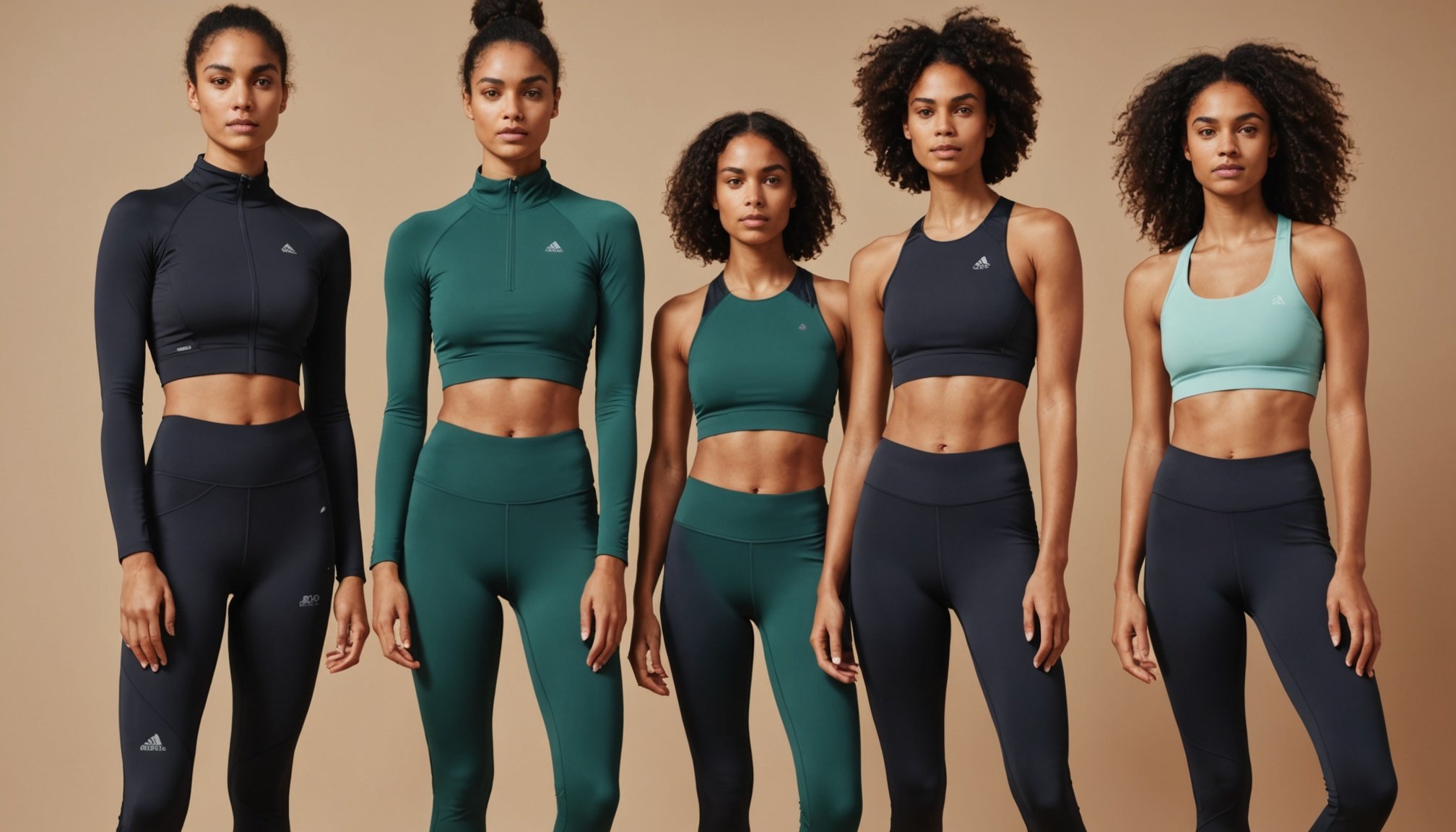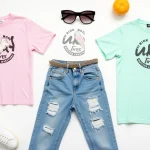Overview of Eco-Conscious Activewear
Eco-conscious activewear represents a growing segment in sustainable fashion, focused on minimizing the environmental impact by using recycled materials. This approach is increasingly significant as consumers become more environmentally aware, seeking apparel that aligns with their values. In the UK, the recycled polyester market is gaining traction as brands innovate to lessen their carbon footprint and promote sustainability.
The recycled polyester market is thriving, fueled by its potential to reduce waste and dependency on virgin resources. UK brands are at the forefront, utilising technology to convert plastic waste into functional activewear. This not only helps in waste management but also creates a circular economy where resources are reused efficiently.
Additional reading : Modernizing Classic British Blazers: Trendy Office Style Techniques for a Contemporary Edge
Sustainable practices are crucial in the fashion industry, with companies adopting responsible manufacturing processes to lower environmental degradation. Using recycled materials, such as polyester, cuts down on water usage and emissions. Such efforts align with global sustainability goals, encouraging consumers to support conscious fashion choices.
Understanding the importance of eco-conscious activewear is key to promoting healthier consumer habits and advancing industry standards. This movement not only prioritises environmental preservation but also motivates brands to innovate and maintain ecological balance.
Also to read : Expert Advice on Restoring Vintage Leather Jackets from UK Marketplaces
Prominent Eco-Conscious UK Brands
The UK’s activewear market is leading the charge with eco-conscious solutions, showcasing several prominent brands prioritising sustainability. These brands are committed to producing eco-friendly products and are making significant strides in their practices and consumer acceptance.
Brand 1: [Brand Name]
Brand Mission: This brand places high value on environmental and social responsibility, aiming to promote sustainable lifestyles through its product offerings. By integrating eco-conscious practices, it influences the market positively.
Sustainable Practices: Integrating recycled polyester into their product lines, they effectively reduce waste and energy use. These practices support a circular economy, aligning perfectly with global sustainability goals.
Consumer Impact: The market has responded warmly, appreciating the brand’s authenticity in promoting sustainable living, evidenced by positive consumer feedback highlighting product quality and innovation.
Brand 2: [Brand Name]
Brand Mission: With a core focus on eco-conscious innovation, this brand dedicates efforts to elevate sustainable practices within the UK activewear scene.
Recycled Polyester Usage: Their use of recycled polyester showcases a dedication to waste reduction and environmental conservation, setting an inspiring example for peers within the industry.
Market Impact: Consumers value transparency and sustainability, reflected in enthusiastic reviews about the brand’s commitment to quality and ethical production.
Case Studies of Recycled Polyester in Activewear
Consumers today are actively seeking sustainable fashion choices, and eco-friendly materials like recycled polyester provide appealing solutions. Real-life examples highlight how brands creatively integrate recycled polyester into their activewear lines, showcasing its potential and flexibility. For instance, one UK brand successfully launched a collection using recycled fabrics derived entirely from plastic bottles. This initiative not only reduced waste but gained widespread consumer praise for innovation.
The consumer response to such products has been overwhelmingly positive, showing an appetite for environmentally responsible fashion. Reviews often emphasize both the practical benefits, such as performance and comfort, and the environmental impact, with customers valuing transparency on material sourcing.
Furthermore, the long-term environmental impact of employing recycled polyester is noteworthy. By using recycled materials, brands significantly cut down on water and energy consumption. This practical shift promotes a circular economy and sets a benchmark for competitors.
In conclusion, these case studies underscore the practical and environmental benefits of integrating recycled polyester in activewear. They illustrate a viable path towards achieving eco-friendly and sustainable industry standards, proving that where eco-conscious innovation leads, consumer enthusiasm and brand success follow.
Benefits of Eco-Conscious Activewear
Choosing eco-conscious activewear offers numerous benefits that align with growing consumer awareness about sustainability. A primary environmental advantage is the usage of recycled materials, such as polyester, which significantly reduces resource consumption and lowers greenhouse emissions. By opting for these materials, brands lessen their reliance on new resources, thus conserving energy and water.
The health and social implications are also noteworthy. Eco-friendly activewear is often produced using less harsh chemicals, benefiting both the consumer’s skin and overall health. Additionally, the emphasis on sustainable fashion supports fair labor practices, creating a more equitable industry.
Comparing traditional activewear with eco-conscious options highlights these benefits even further. Traditional activewear typically involves higher energy consumption and increased waste, posing greater environmental challenges. In contrast, sustainable alternatives contribute to a cleaner production cycle and promote a circular economy.
Consumers are increasingly prioritizing brands that reflect their values, including ethical production and environmental care. Consequently, the shift towards sustainable fashion not only helps the planet but also meets the demands of a more conscientious market. As awareness grows, the trend towards eco-conscious apparel is expected to become the standard, encouraging long-term sustainability in fashion.
Insights from Industry Experts
To provide a deeper understanding of the sustainable fashion landscape, we turned to fashion industry insights and sustainability experts. One prevalent theme from these discussions is the increasing priority of eco-conscious material choices. Experts continually highlight the necessity of embracing sustainable innovations, particularly in recycled materials, to meet consumer demands and environmental goals.
Expert Interview Overview
During these conversations, sustainability experts emphasize the transformative potential of eco-conscious activewear. They uphold that such materials not only reduce environmental impact but are crucial for brand differentiation in a competitive market. According to one leading expert, sustainable practices in the fashion industry are vital for “pushing the boundaries of innovation.”
Insights from brand founders reveal a strong commitment to integrating eco-friendly products. They view the use of recycled polyester as merely the beginning of a broader movement towards future trends in sustainable innovations. A recurring sentiment is the aspiration to expand beyond current materials, exploring new avenues for activewear development. Emphasizing this, another founder mentioned, “The journey towards sustainability is constant, and innovation is the key to unlocking the full potential of eco-consciousness.”
Future of Eco-Conscious Activewear
As the fashion industry continues to evolve, the future of eco-conscious activewear is set to advance with innovative strides. Experts predict a shift beyond traditional recycled polyester, tapping into sustainable innovations that promise to transform activewear. As new materials emerge, brands will likely explore natural fibres and biodegradable options, reducing further reliance on synthetic substances.
This wave of activewear development highlights both challenges and opportunities. Navigating resource accessibility and production scalability presents hurdles that innovators must overcome to mainstream new materials. Yet, this drive also opens avenues for remarkable creativity and sustainable solutions that could redefine industry standards.
One can anticipate an increased integration of smart textiles, offering enhanced functionality while maintaining eco-friendliness. Such advancements not only cater to performance needs but bolster the sustainability movement, encouraging consumers to make environmentally responsible choices.
Despite the complexities, these trends underscore a critical industry shift towards embedding sustainability wholeheartedly. By embracing cutting-edge activewear innovations, brands can establish themselves as pioneers while addressing growing consumer demands. Progress in this domain promises a future where eco-consciousness is seamlessly intertwined with style and performance, ensuring a sustainable fashion ecosystem for generations to come.











